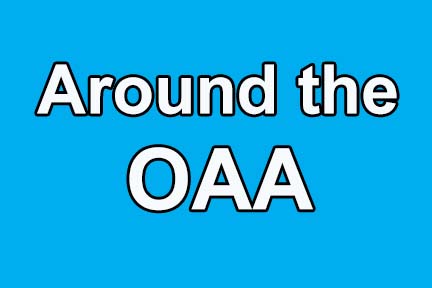
Girls Soccer District Preview By Sammy Taormina
Around the OAA.
This is a blog that is devoted to the OAA. We cover 23 schools from Oakland County to Wayne County. From Oxford to Harper Woods. This blog will give insight and projections around the OAA.
Sunday, May 15, 2022
Girls Soccer District Preview.
Written Sunday May 15th at 11:20 AM
By Sammy Taormina

Here are the district matchups and insight for Girls Soccer.
District 5 at Lake Orion
CLARKSTON vs. OXFORD
Davison vs. 2. Grand Blanc
Flushing vs. Lapeer
Flushing/Lapeer vs. 1. LAKE ORION
EARLY THOUGHTS: This is a very interesting district at Lake Orion. I think five teams really stand out in Oxford, Lake Orion, Clarkston, Grand Blanc, and Davison. The Dragons won this district last season and have the talent to do it again despite their record. Oxford has had a stellar season thus far. Grand Blanc is Grand Blanc. Clarkston has done well this season. Davison has been playing well as of late. This should be a fun district to watch as mentioned.
District 6 at West Bloomfield
Walled Lake Central vs. Lakeland
Waterford Kettering vs. 2. Walled Lake Northern
Waterford Mott vs. WEST BLOOMFIELD
Waterford Mott/WEST BLOOMFIELD vs. 1. BLOOMFIELD HILLS
EARLY THOUGHTS: This is shaping up to be a very interesting district at West Bloomfield. I think there are three teams in Walled Lake Central, Walled Lake Northern, and Bloomfield Hills that really stands out. Waterford Mott is a possible darkhorse. I don’t think any other schools really stand out besides the three mentioned above but anything is possible.
District 7 at North Farmington
FARMINGTON vs. Walled Lake Western
NORTH FARMINGTON vs. 2. Farmington Hills Mercy
Novi vs. SOUTHFIELD ARTS AND TECH
Novi/SOUTHFIELD ARTS AND TECH vs. 1. Livonia Stevenson
EARLY THOUGHTS: This is a very interesting district shaping up at North Farmington. The early favorite is Livonia Stevenson. The Spartans have been solid but there are proven powers in Novi and Farmington Hills Mercy. North Farmington is a possible wildcard and could give the Marlins fits in the first round. I see a possible district final between Livonia Stevenson and Farmington Hills Mercy but things could change really quick.
District 13 at Troy
BERKLEY vs. Warren Mott
GROVES vs. 2. TROY
SEAHOLM vs. ROYAL OAK
SEAHOLM/ROYAL OAK vs. 1. TROY ATHENS
EARLY THOUGHTS: This is a very interesting district at Troy. The favorite has to be Troy Athens. The Red Hawks have had a strong season. There are some challengers to watch in Troy, Berkley, Seaholm, and Royal Oak. These four teams could give Troy Athens everything they can handle. Berkley and Groves are potential wildcards in this district. Warren Mott could struggle in this district but right now until anyone overcomes the Red Hawks this district is there’s to lose.
District 15 at Romeo
ADAMS vs. Utica Ford II
Romeo vs. 2. ROCHESTER
Utica vs. Utica Eisenhower
Utica/Utica Eisenhower vs. 1. STONEY CREEK
EARLY THOUGHTS: Dan Barnabo Field will host what likely would be considered “the Group of Death” in World Cup standards in the postseason. All seven of these teams are proven powers. Rochester, Stoney Creek, Adams, and Romeo are ranked in the State in Division One. It’s tough that only of these schools will move on. This is a fun district to watch in Girls Soccer with a lot of proven programs.
District 23 at Fenton
Fenton vs. Brandon
Fenton/Brandon vs. 1. Lake Fenton
AVONDALE vs. Holly
AVONDALE/Holly vs. 2. Linden
EARLY THOUGHTS: This district should be very interesting. Fenton and Linden both stand out in this district but Avondale and Brandon are wildcards. Lake Fenton is the top seed but they have a really tough matchup in the district semifinals. I would give an early edge to the Tigers because of home field but the Eagles are right there with Fenton. Brandon has always been solid. Avondale is a wildcard as mentioned. All five teams have a great chance to win this district.
District 27 at Livonia Clarenceville
FERNDALE vs. Madison Heights Lamphere
FERNDALE/Madison Heights Lamphere vs. 1. Birmingham Marian
Detroit Renaissance vs. Livonia Clarenceville
Detroit Renaissance/Livonia Clarenceville vs. 2. Bloomfield Hills Cranbrook-Kingswood
EARLY THOUGHTS: When looking at this district on paper, there is one team that stands out and that’s Birmingham Marian. The Mustangs are a proven power in Division Two so it’s clear that they should be the favorite to win this district. I don’t really see anyone in this district that can give Birmingham Marian any issues but it would be shocking if someone did.
Email ThisBlogThis!Share to TwitterShare to FacebookShare to Pinterest
Friday, May 13, 2022
Girls Tennis Regional Preview.
Written Friday May 13th at 6:15 PM
Here is my preview for Girls Tennis for the regional taking place this week.
Underlined: Projected Regional Champ.
Regional 4 at Livonia Churchill
FARMINGTON
SOUTHFIELD ARTS AND TECH
Livonia Churchill
Dearborn
Dearborn Fordson
Dearborn Edsel Ford
Detroit Cass Tech
Farmington Hills Mercy
Livonia Stevenson
PROJECTED THREE TEAMS: Livonia Churchill, Farmington Hills Mercy, and Dearborn Edsel Ford.
Regional 5 at Troy
TROY
TROY ATHENS
ROYAL OAK
Fraser
St. Clair Shores Lakeview
Sterling Heights
Sterling Heights Stevenson
Utica Ford
Warren Mott
PROJECTED THREE TEAMS: Troy, Royal Oak, and Troy Athens.
Regional 6 at Utica Eisenhower
STONEY CREEK
Utica Eisenhower
Chippewa Valley
Macomb L’Anse Creuse
Macomb Dakota
Macomb L’Anse Creuse North
New Baltimore Anchor Bay
Port Huron Northern
Romeo
Utica
PROJECTED THREE TEAMS: Stoney Creek, Port Huron Northern, and Utica Eisenhower.
Regional 7 at Clarkston
CLARKSTON
BLOOMFIELD HILLS
LAKE ORION
OXFORD
ROCHESTER
ADAMS
WEST BLOOMFIELD
Walled Lake Northern
Waterford Kettering
White Lake Lakeland
PROJECTED THREE TEAMS: Bloomfield Hills, Clarkston, and Adams.
Regional 12 at North Farmington
NORTH FARMINGTON
AVONDALE
GROVES
SEAHOLM
Fenton
Flint Carman Ainsworth
Flint Kearsley
Holly
Swartz Creek
PROJECTED THREE TEAMS: Seaholm, Groves, and North Farmington.
Regional 13 at Grosse Pointe North
BERKLEY
FERNDALE
Detroit Renaissance
Grosse Pointe North
Grosse Pointe South
Hamtramck
Port Huron
Warren Cousino
Warren Woods Tower
PROJECTED THREE TEAMS: Grosse Pointe South, Grosse Pointe North, and Berkley.
Regional 20 at Bloomfield Hills Cranbrook-Kingswood
HARPER WOODS
Bloomfield Hills Cranbrook-Kingswood
Birmingham Marian
Dearborn Divine Child
Birmingham Detroit Country Day
Detroit Mumford
Eastpointe
Garden City
Hazel Park
Madison Heights Lamphere
Warren Fitzgerald
PROJECTED THREE TEAMS: Bloomfield Hills Cranbrook-Kingswood, Birmingham Marian, and Birmingham Detroit Country Day.
Email ThisBlogThis!Share to TwitterShare to FacebookShare to Pinterest
Boys Lacrosse Regional Preview.
Written Friday May 13th at 3:10 PM
Here is my early regional thoughts for Boys Lacrosse.
Regional 4 at Seaholm (Birmingham)
- Livonia Stevenson vs. 5. FARMINGTON UNITED
- BIRMINGHAM UNITED vs. 7. Detroit Cass Tech
- Detroit University-Detroit Jesuit vs. 6. ROYAL OAK
- Livonia Stevenson/5. FARMINGTON UNITED vs. 1. Birmingham Brother Rice
REGIONAL OUTLOOK: There were some changes to this regional. Royal Oak is in this regional after they were supposed to be in a different regional and division. The Ravens would have a tough matchup with Detroit University-Detroit Jesuit. Birmingham Brother Rice is the overwhelming favorite in this regional but Birmingham could give them a scare in the regional final but it won’t be enough. I see the Warriors moving on to the State quarterfinals with ease.
Regional 5 at Troy Athens
- CLARKSTON vs. 8. Utica Ford
- Macomb L’Anse Creuse North vs. 5. New Baltimore Anchor Bay
- Macomb Dakota vs. 7. Sterling Heights Stevenson
- TROY ATHENS vs. 6. Chippewa Valley
REGIONAL OUTLOOK: This is a very interesting regional but one team really stands out in Clarkston. The Wolves are state ranked and should cruse in this regional. Macomb Dakota could challenge but I don’t really see anyone beating the Wolves in this regional.
Regional 6 at Romeo
- LAKE ORION vs. 8. Utica Eisenhower/Utica
- Romeo vs. 5. ROCHESTER
- STONEY CREEK vs. 7. OXFORD
- ADAMS vs. 6. Port Huron United
REGIONAL OUTLOOK: This is looking to be a very competitive regional. Lake Orion is the favorite but this is not the same Dragons program as in the past when they were in the State semifinals in the last two years. Adams has been solid. They are a sleeper in this regional. Stoney Creek is the second seed but they haven’t played the schedule as what Lake Orion and Adams have done in the Red. I’m not sold on Port Huron despite getting the three seed. I see for now a Lake Orion/Adams regional final with the Dragons moving on.
Regional 7 at Hartland
- WEST BLOOMFIELD vs. 9. Waterford United
- WEST BLOOMFIELD/9. Waterford United vs. 1. Hartland
- Linden/Fenton vs. 5. Brandon/Holly
- Walled Lake United vs. 7. TROY
- Huron Valley vs. 6. BLOOMFIELD HILLS
REGIONAL OUTLOOK: This is a very interesting regional. Brandon/Holly enters this regional and could give Linden/Fenton some trouble in the first round. They need to be very careful of Bloomfield Hills, I think Bloomfield Hills could pose an upset against Huron Valley and give Walled Lake United all they can handle in the regional semifinals. Hartland has the top seed, state ranked, and home field. They should cruse into the State quarterfinals.
Email ThisBlogThis!Share to TwitterShare to FacebookShare to Pinterest










